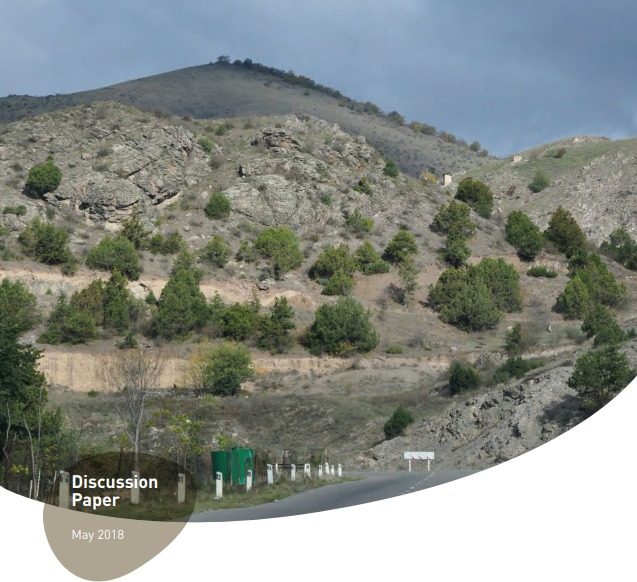
A final status vote for Nagorny Karabakh
A policy brief on the status vote proposed by the Basic ('Madrid') Principles, aimed at stimulating discussion, published by the Karabakh Contact Group in 2018.
A space for discussion involving activists and analysts.
The description of this project has been provided by Conciliation Resources
The Karabakh Contact Group (KCG) was devised as a way to bring together activists and analysts from across the Armenian-Azerbaijani divide to discuss peacebuilding ideas and the ‘Basic Principles’ – a set of agreed-upon points that serve as a foundation for further negotiations.
The aim was to provide a flexible and confidential format for ‘Track 2’ dialogue that involves non-state actors in an unofficial peacebuilding process. The participants were invited on the basis of their expertise and their ability to influence others in their society. Regional participants included civil society activists, academics, journalists, think tank experts and former politicians. International experts were also invited, bringing insights from other comparable conflicts.
To ensure confidentiality, meetings were held under the Chatham House Rule. This format allows the participants to freely express their opinions, however, for the public they stay anonymous. Most took place over two to three days and most were in Tbilisi. One meeting was held in Washington D.C. In total there were seven cross-divide dialogue meetings and three outreach meetings.
Results and research outputs
The group generally achieved a high-quality level of discussion, and some participants who took part in successive meetings began to form more trusting relationships.
From a ‘dialogue through research’ format, the project developed to become more focused on dialogue.
An external evaluation by Conciliation Resources stated: “The significance of the KCG work is that it puts the Madrid Principles (plan for the Nagorny Karabakh conflict settlement proposed by the Minsk Group in 2007) back into the public sphere, questions the principles and provides a platform for public debate. The KCG work aims to make policy experts, academics and analysts think how policy makers should engage in dialogue on difficult issues and deal with a changing environment.”
Following each meeting, Conciliation Resources drafted briefing papers which summarised the discussions. These included the main areas of divergence (especially in the interpretation and understanding of the Basic Principles) and suggested possible areas for policy change.
In total, one research report was produced (‘Forced displacement in the Nagorny Karabakh Conflict: Return and its alternatives’), along with six discussion papers , some in multiple languages. These were disseminated to governments, authorities, the EU’s various agencies and to third-party states through their delegations to the South Caucasus. Presentations of the papers were given in Baku, Brussels, London, Stepanakert and Yerevan.
Criticism and limitations
Feedback suggested that these papers were useful in explaining the key debates around the principal components of a peace agreement. However, they were also found to be at times too dense and inaccessible for a wider audience.
In terms of participation, the project was successful in ensuring that Karabakh Armenians and displaced Azerbaijanis played a prominent role, among others. However, it was difficult to involve participants who were closer to power structures. This reflected a deeper problem, which was the lack of good faith debates over the Basic Principles more generally. Although the KCG created a narrow space for this kind of debate, it was not able to stimulate wider debate because there was little demand or take-up for its outputs.
The format was also criticised by some both for being too confidential and for reaching only the ‘usual suspects’ (despite every meeting featuring a different group of participants).
Currently, the project is on hold.
Supporting creative thinking across the Armenian-Azerbaijani divide, Conciliation Resources: background information on the project.
Karabakh Contact Group meet in Washington, Conciliation Resources, January 2015
The Nagorny Karabakh Conflict and the Future of the Madrid Principles, Carnegie Endowment for International Peace, 18 December 2014: audio recording of the meeting in Washington D.C.
The Nagorny Karabakh problem and the seventh year of the Madrid principles, 20 December 2014: Video of Washington D.C. meeting with Armenian language voice-over.
Photograph by Gulnar Salimova
We have big dreams. The KCG helps me to make my dreams more achievable. As a Track 2 activist in Azerbaijan, I now have the opportunity to bring my ideas to the table and make proposals to Track 1, having tested them out first hand within this format.KCG participant
Discussions have never taken place in such an in-depth and constructive way … and with Conciliation Resources’ help we have found some points of convergence between us.KCG participant

A policy brief on the status vote proposed by the Basic ('Madrid') Principles, aimed at stimulating discussion, published by the Karabakh Contact Group in 2018.
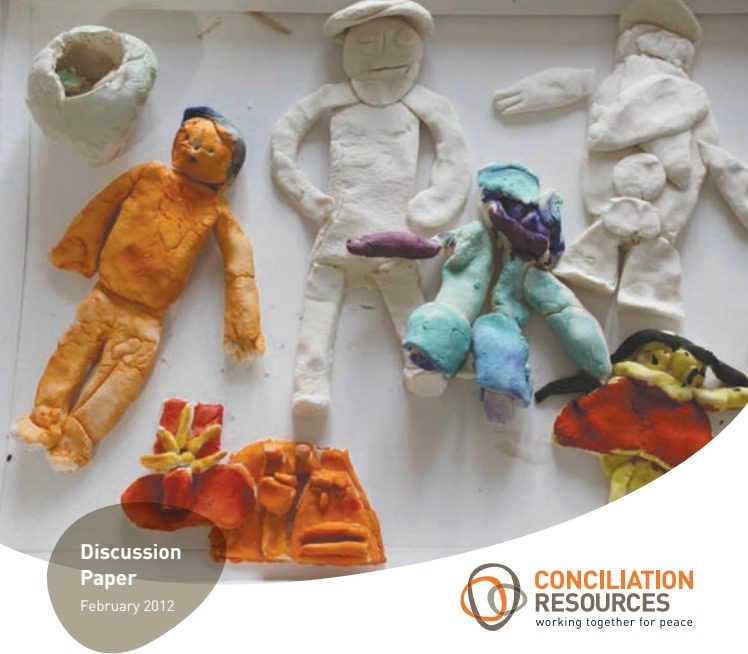
A policy brief on the status of Nagorny Karabakh, published by the Karabakh Contact Group in 2018.
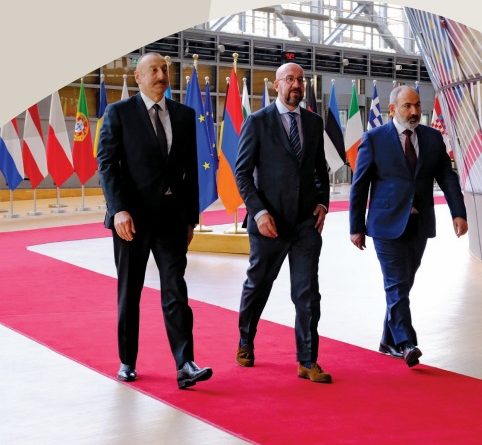
A discussion paper by Professor David Lewis on the evolving challenges faced by EU peacebuilding in the South Caucasus.
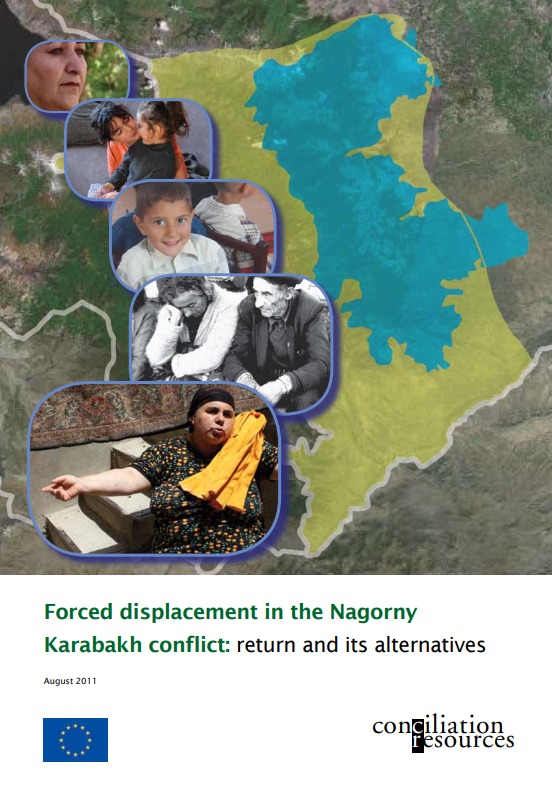
A policy brief on the issue of displaced communities and their right to return, published by the Karabakh Contact Group in 2011.
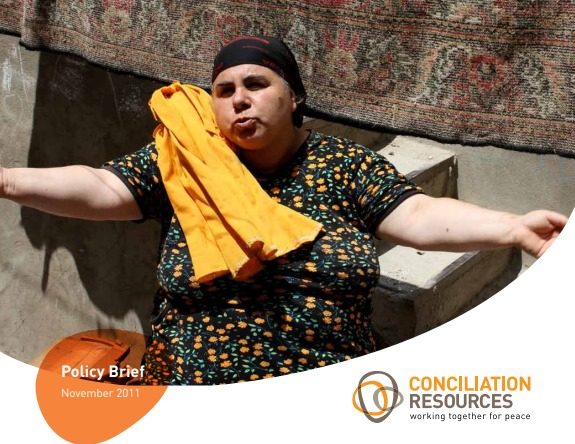
A policy brief on the issue of people who lost their homes as a result of the Nagorny Karabakh conflict, published by the Karabakh Contact Group in 2011.
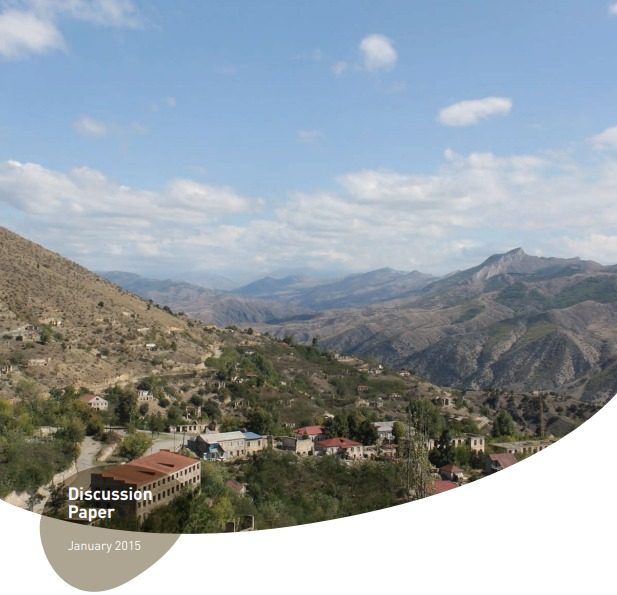
A policy brief on geography and access to territory, published by the Karabakh Contact Group in 2015.
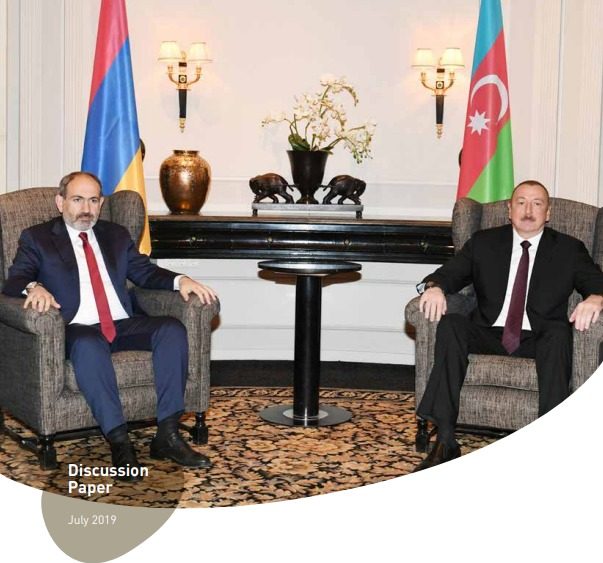
A policy brief on the commitment to ‘preparing their populations for peace’, published by the Karabakh Contact Group in 2019.
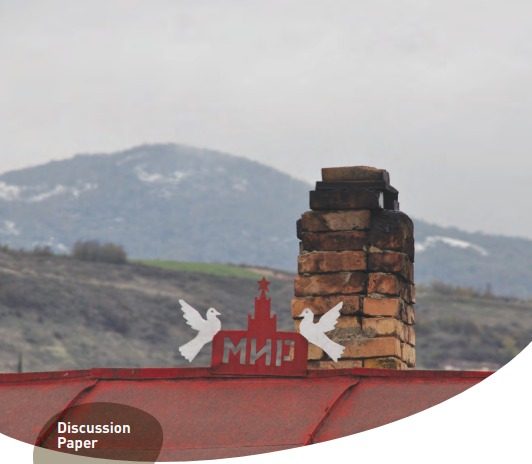
A policy brief on mutual insecurity as a factor in Armenian-Azerbaijani relations, published by the Karabakh Contact Group in 2015.